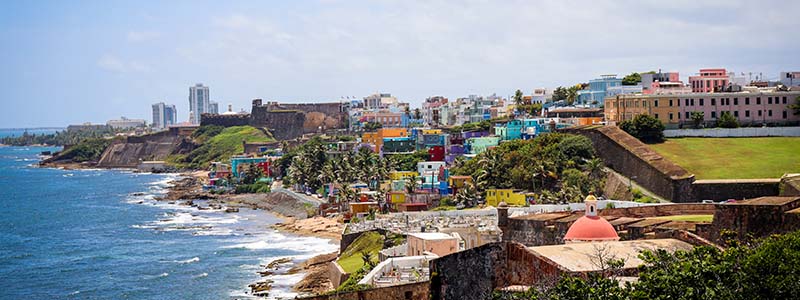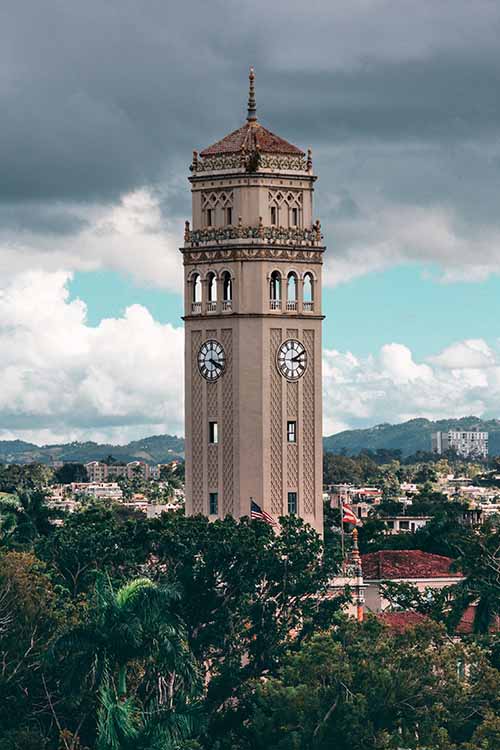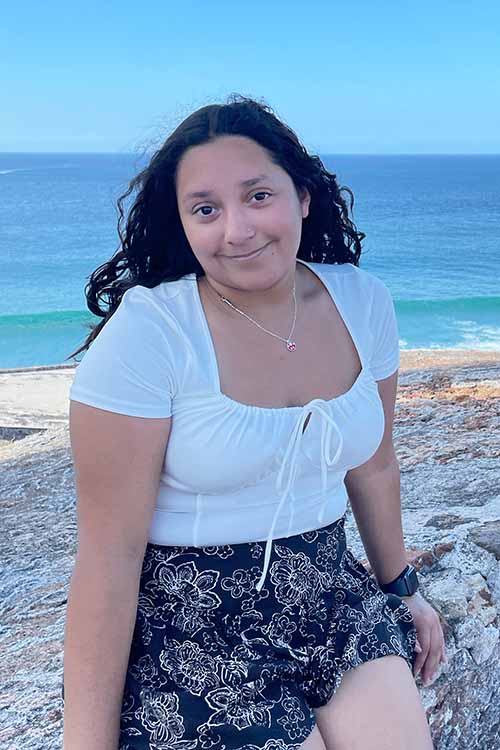Alumna discovers career path in Puerto Rico

Normally composed, Keyla Ramirez felt excitement bursting inside her. She had made it into a new year-long research program in Puerto Rico that would start immediately after she finished her bachelor’s degree.
The only problem: How would she break the news to her parents?
She could already hear their questions: “Aren’t there opportunities like that here? Why Puerto Rico?”
Home is where the start is
Staying local was easy for Ramirez, a first-generation college student born and raised in Houston. After discovering her science bent in high school chemistry, she enrolled in San Jacinto College’s life science program (now natural science) in 2018.
San Jac was not only close and affordable but also the best foundation for her future. Under biology professor Dr. Tyler Olivier, she participated in service learning at Sheldon Lake State Park, where she surveyed birds and shoveled earth to make room for new prairie grasses.
I’m glad I took this opportunity to see what could happen.
Olivier called Ramirez a natural scientist — “curious, intelligent, and highly determined.”
“She always asked questions, sought answers, and proposed hypotheses in class,” he said. “I can't recall a time when I passed Keyla's lab bench and she and I didn’t engage in a biology conversation. I remember thinking, ‘Wow, she may be soft-spoken, but when she speaks, it's relevant.’”
Ramirez also served as a chemistry lab assistant, setting up equipment, making reagents, and preparing labs for students. Thanks to plenty of hands-on lab skills, she felt ready for the next step.
To D.C. and beyond

When face-to-face classes finally returned, Ramirez pushed herself to make up for what she’d lost.
“I was way more extroverted than I usually am,” she said. “I made some friends in my classes, and I would form a little study group: ‘Let's help each other with this.’”
In summer 2021, Ramirez participated in Rice University’s nanotechnology research experience for undergraduates, working alongside a researcher in a Rice lab.
Almost two years later, despite feeling nervous, she presented at the Emerging Researchers National Conference in STEM in Washington, D.C. There, she learned about RaMP-UP, the Research and Mentoring for Post-baccalaureates in Biological Sciences at the University of Puerto Rico, Río Piedras Campus. Should she go after it?
“It was a big change moving from Texas to Puerto Rico,” Ramirez said. “I decided to apply … to see what would happen. The worst they could say was no, and then I could move on to something else.”
Instead, she soon found herself boarding a plane to Puerto Rico.
Change of scenery

Although not her first pick, Ramirez worked in the breast cancer lab. From maintaining and growing cells to doing computational analysis, she studied the role estradiol plays in the p38 MAPK pathway in triple-negative inflammatory breast cancer.
She deepened her data analysis, critical thinking, and even communication skills as she presented to audiences without any cancer research background.
“I was able to explain everything so they could follow the thought process of my research,” she said. “That made me feel empowered. I knew what I was talking about.”
Ramirez never pictured doing cancer research in Puerto Rico, but this experience has sparked a different career plan — “creating new therapeutic advancements to combat cancer.”
Chasing the future
Why Puerto Rico? Ramirez can answer that now.
RaMP-UP not only stretched her independence but also gave her a new vision. Once, she had imagined becoming a medical doctor. Thanks to starting local at San Jac and chasing distant opportunities in Puerto Rico, she has learned how much she enjoys behind-the-scenes research. After working for a year, she may pursue a Ph.D. in cell biology.
Sometimes you have to travel far to discover what’s around the corner.
“I’m glad I took this opportunity to see what could happen,” Ramirez said.
